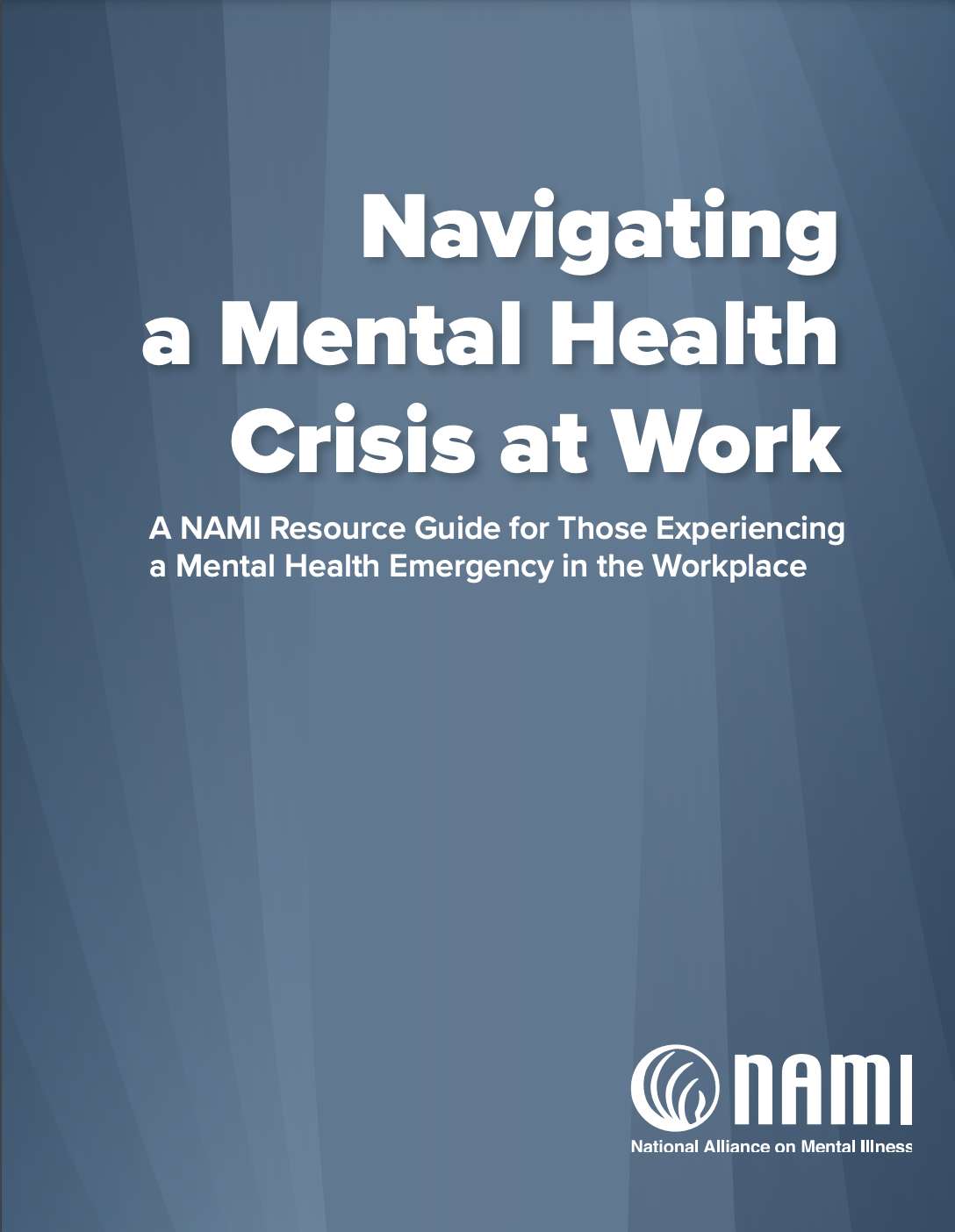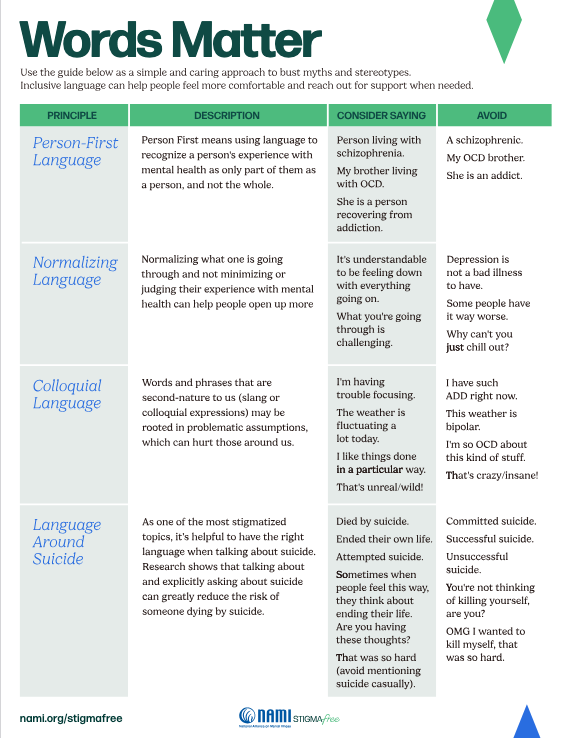Talking about mental health at work can feel intimidating, especially if you’re unsure where to start.
As a manager, you are not expected to be a therapist or have all the answers when it comes to mental health. It’s important to remember that mental health discussions at work should steer clear of diagnoses and treatment plans. Instead, focus on showing empathy, creating a safe space, and providing resources. Remember to follow up with resources like your company’s benefits or Employee Assistance Program (EAP), your local NAMI affiliate, or call the NAMI HelpLine at 1-800-950-NAMI.
Use the following recommendations as a starting point for a conversation about mental health, but we recommend changing the wording to be authentic to how you typically communicate.
How to Start the Conversation
Start with specific signs you have noticed:
“I’ve noticed you’ve had a few difficult encounters with challenging customers these last few weeks. I know that can be uncomfortable, and I’m wondering how you’re feeling?”
Use “I” language in talking about emotions:
- “I feel concerned as I haven’t heard from you as much in our meetings.”
Ask questions to get more information:
- “That meeting was really intense. How can I support our next steps? We can meet to debrief if that would be helpful.”
Start with being vulnerable and sharing your own experience:
- “I’ve been stressed about our new deadline, I wonder if you’ve been stressed, too?”
Be direct if you are concerned about signs of suicide:
- “Are you thinking about suicide or self-harm?”
Words to validate a mental health concern
Use reflective listening:
- “I hear you saying that you are feeling sadder than usual and are having a hard time engaging in your work. Is that right?”
- “It sounds like you’re unhappy with the way this project is going. Can you tell me more about that?”
Express concern and offer support:
- “I can see how much this is affecting you. I’m here to help.”
Empathize by normalizing what they’re going through:
- “That must be frightening. I would feel scared, too, if that were happening to me.”
Express gratitude for their sharing:
- “Thank you for sharing this with me, I know it probably wasn’t easy.”
- “It means a lot you could talk to me about this.”
- “I’m glad I could be here to listen today.”
Remind them that they are not alone:
- “You are not alone. I’m here for you.”
- “I may not be able to understand exactly how you feel, but I care about you and want to help.”
- “I’m concerned about you, and I want you to know there is help available.”
If the person is at risk of suicide or harm, here’s a few examples of what NOT to say:
- Don’t promise secrecy:
- Say instead: “I care about you too much to keep this kind of secret. You deserve help, and I’m here to help you get it.”
- Don’t ask questions in a way that indicate you want “No” for an answer:
- “You’re not thinking about suicide, are you?”
- Say instead: “Are you thinking about suicide?”
- Don’t be dismissive or minimizing:
- “We all go through tough times like these. You’ll be fine.”
- Say instead: “What you’re going through sounds really challenging.”
- Call 988 immediately if the person is thinking about suicide.
If the person is not open to sharing:
- Don’t pressure them to share.
- Remind them they are not alone.
- Provide resources. Even if they don’t seem interested, they may check out resources in private.
How to set boundaries during a conversation
If someone shares personal information at an inappropriate time or shares about topics that make you uncomfortable, it’s okay to set a boundary. You’re always allowed to put your own mental health first, and there is never an expectation for you to be a colleague’s therapist or primary support.
- If you’re in a meeting and need to move the conversation to a new topic, try saying:
- “Thank you for being so open with the team. I’d love to continue this chat one-on-one where we can talk through some more resources, but we need to refocus on our agenda now.”
- If the topic is making you upset, let them know how you’re able to support them:
- “I appreciate you sharing about your eating disorder, but talking about throwing up makes me uncomfortable. Can we continue without going into specifics?”
Resources to share with your employee
- Your company’s Employee Assistance Plan (EAP)
- Your company’s mental health benefits
- NAMI HelpLine
- Available Monday – Friday, 10 a.m. – 10 p.m. ET.
- NAMI HelpLine Call: 1-800-950-NAMI (6264)
- Text: “helpline” to 62640 | Email: [email protected]
- 988 Suicide & Crisis Lifeline: Available 24/7/365 Call, text, or chat 988lifeline.org
More resources about having a mental health conversation
- Words Matter: How to Use Inclusive Language When Talking About Mental Health
- Be StigmaFree: A Guide for Coworkers


